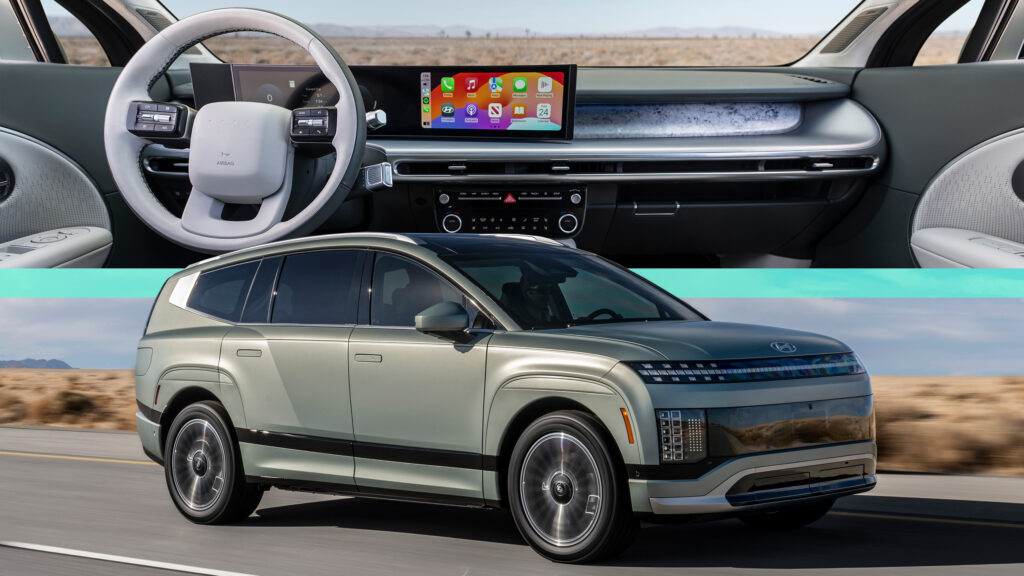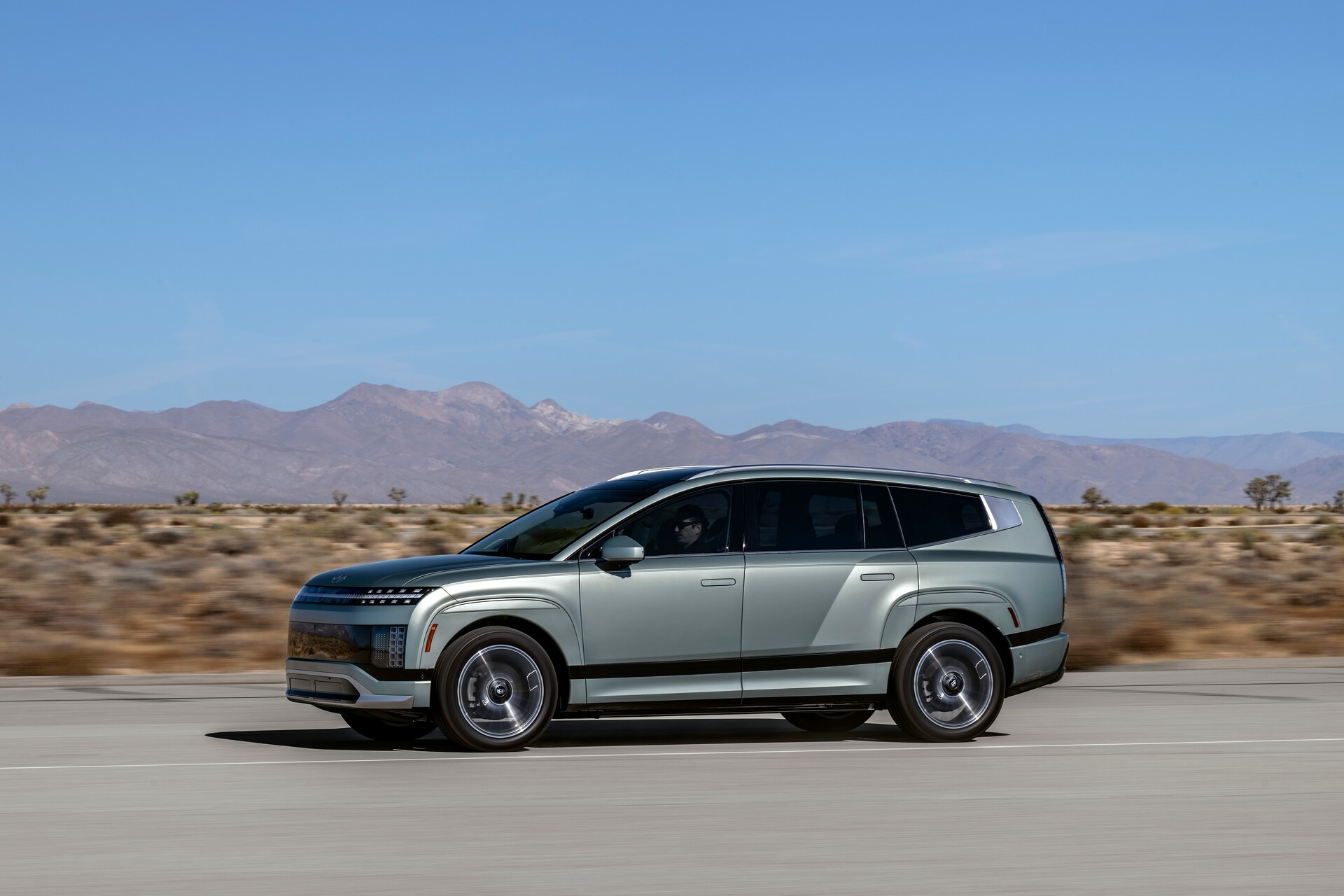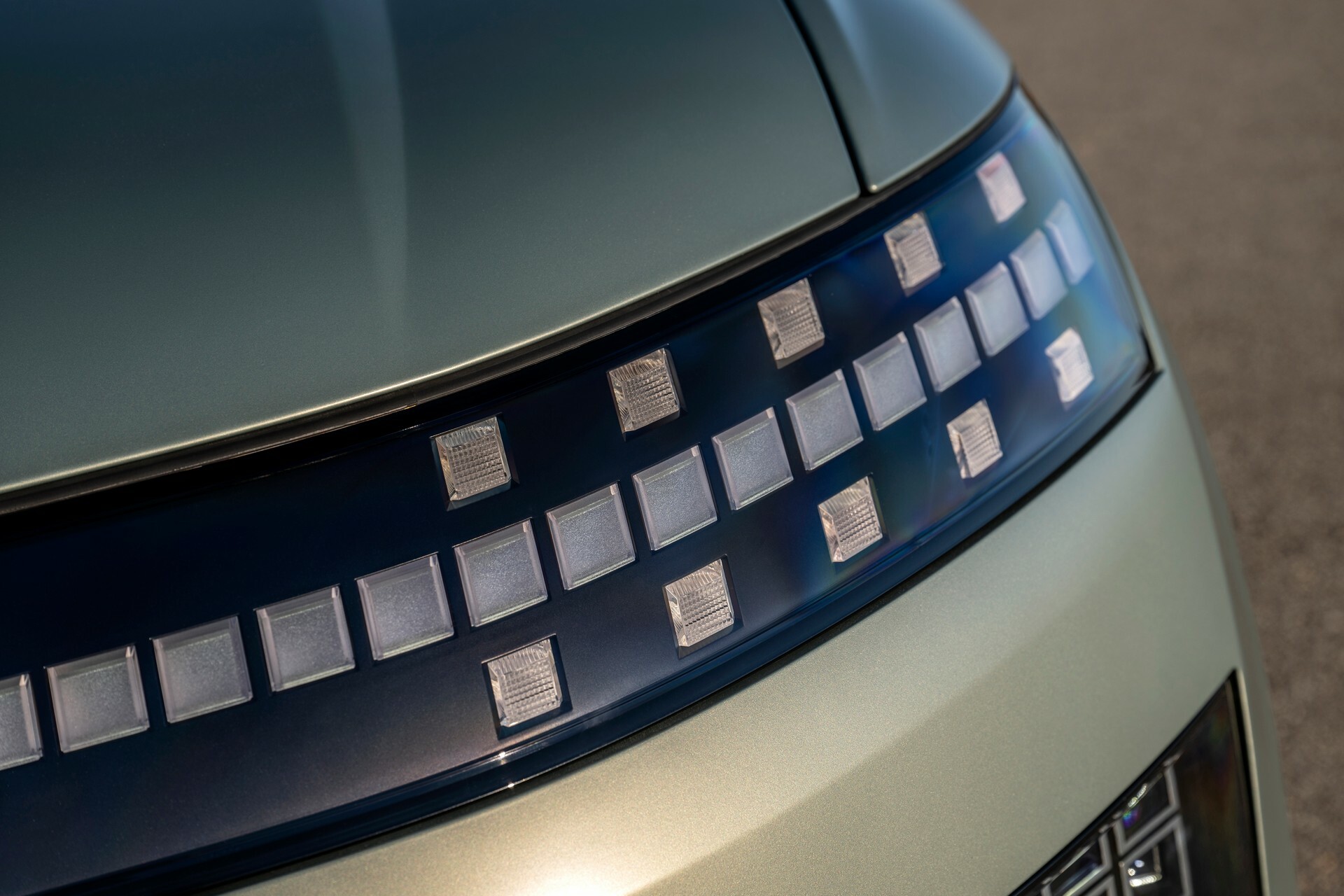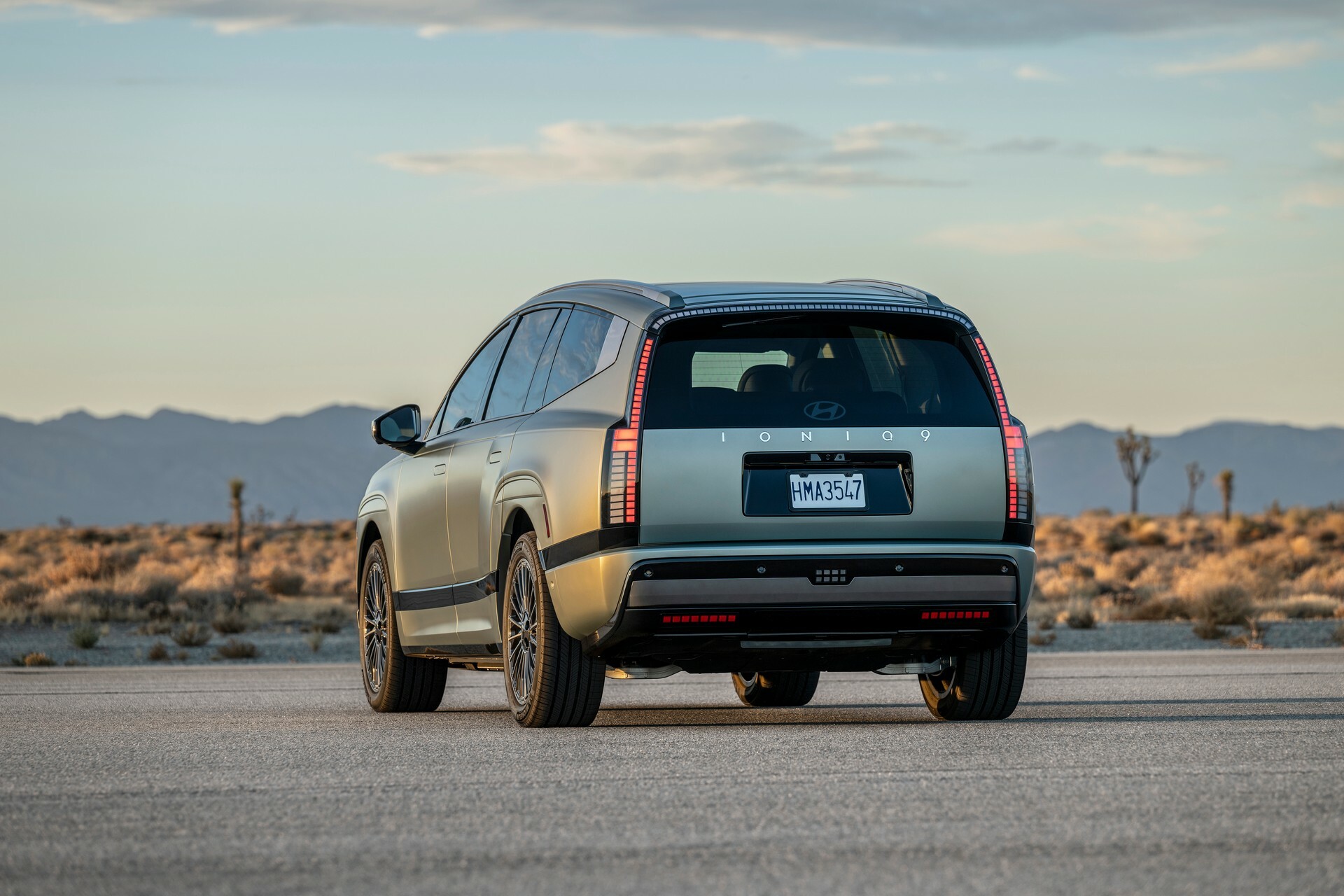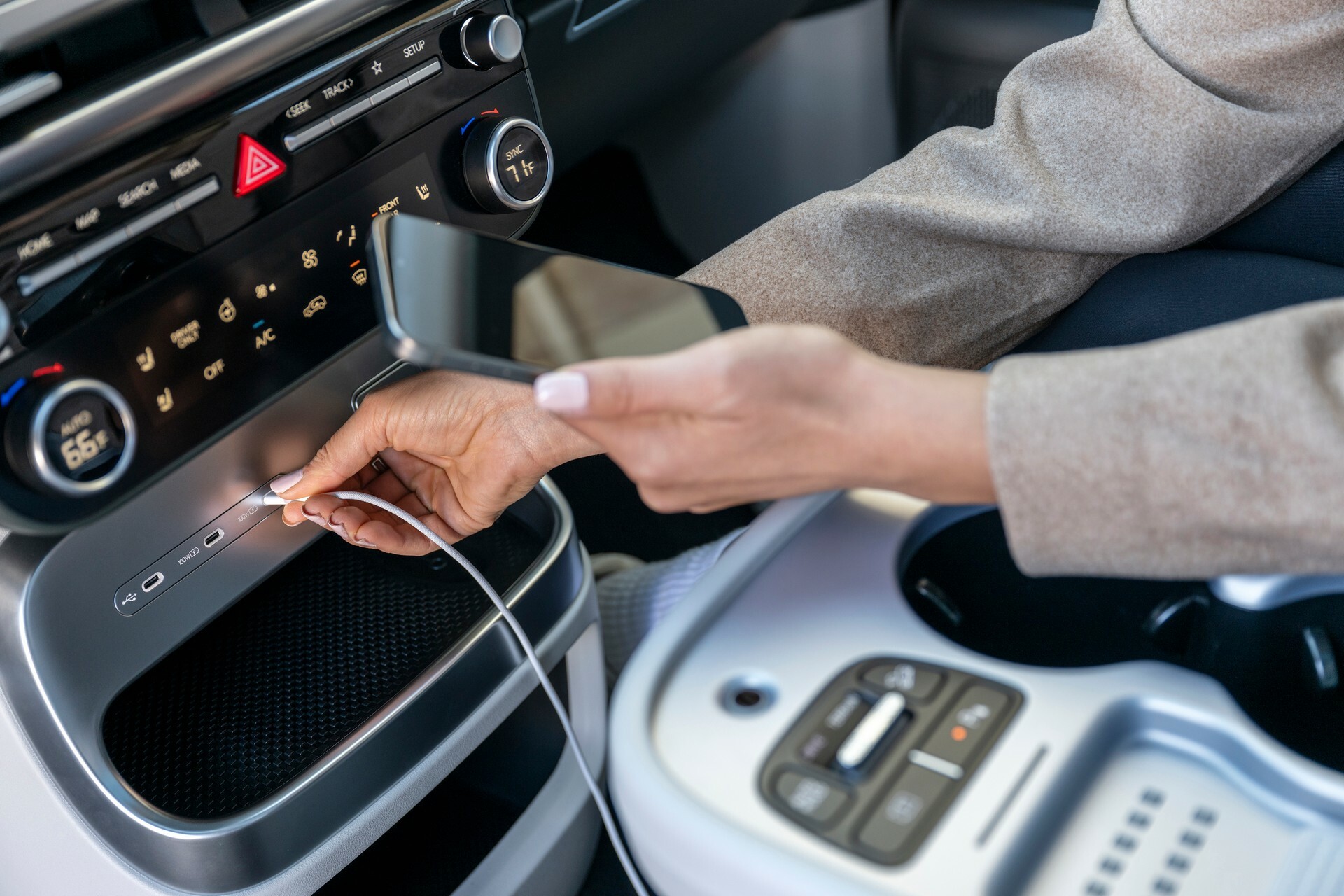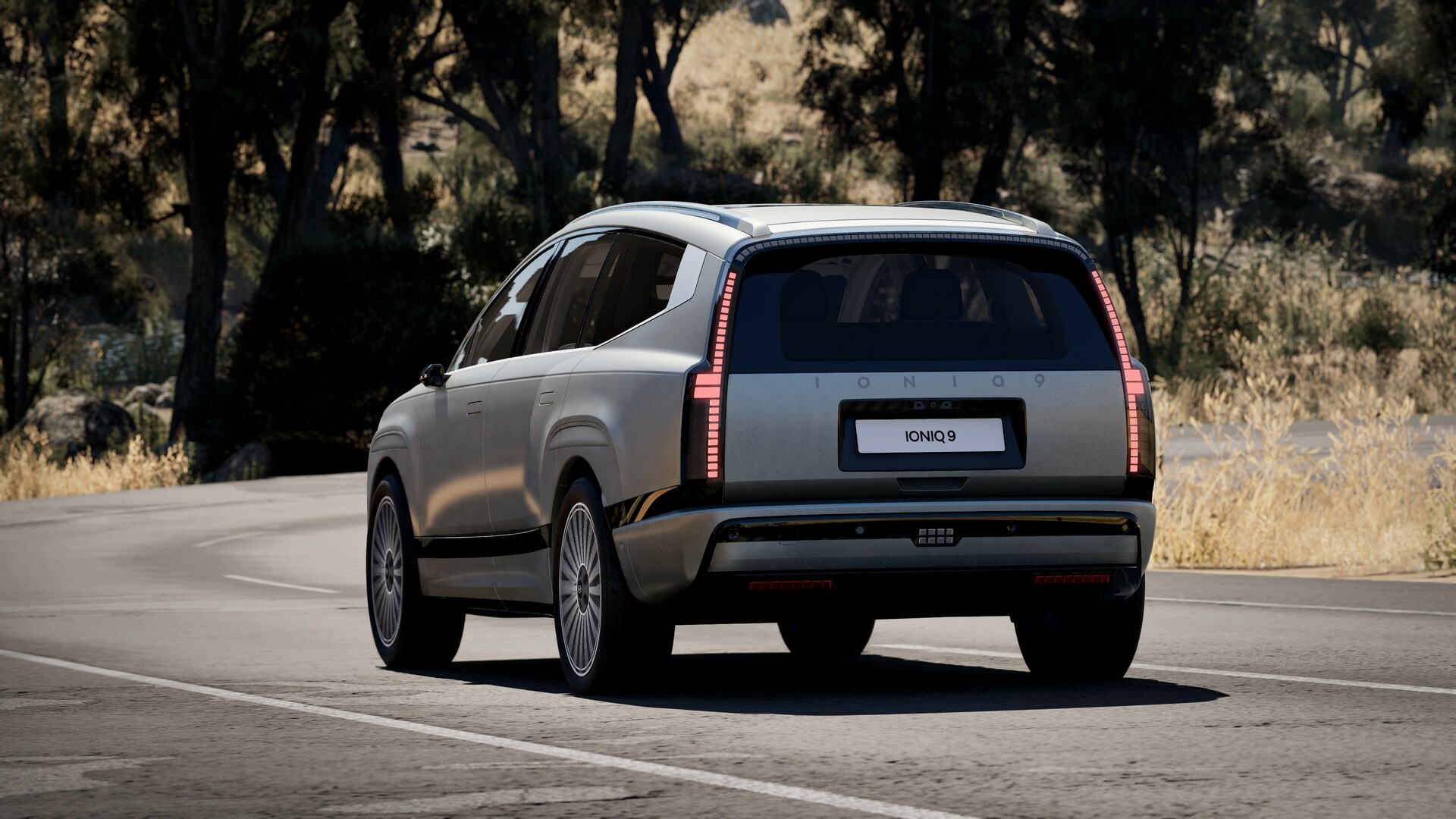- The Ioniq 9 Performance can hit 62 mph in an impressive 5.2 seconds.
- Despite the SUV’s huge battery pack, it only takes 24 minutes to charge from 10-80%.
- Both six- and seven-seat versions will be available.
Hyundai’s long-awaited three-row electric SUV has finally arrived in the form of the Ioniq 9. It serves as the brand’s equivalent to the Kia EV9 and is underpinned by the familiar E-GMP architecture beneath the skin of several Hyundai, Kia, and Genesis models.
Powertrain Options and Performance
All versions of the Ioniq 9 come equipped with a massive 110.3 kWh battery and it will be sold in three different configurations. Entry-level Long Range models are equipped with a single electric motor at the rear, producing 214 hp (160 kW) and 258 lb-ft (350 Nm) of torque. Hyundai says this model can travel up to 385 miles (620 km) on the WLTP testing cycle when equipped with 19-inch wheels.
Read: New Hyundai EV Pickups May Be Named Ioniq T10 And Ioniq T7
Those seeking some additional performance can opt for the Long Range AWD. It adds a 94 hp (70 kW) motor to the front axle, with an extra 188 lb-ft (255 Nm) of torque. Sitting at the top of the range is the Ioniq 9 Performance, rocking a pair of 214 hp (160 kW) motors at the front and rear. This model can hit 62 mph (100 km/h) in 5.2 seconds, whereas the Long Range AWD needs 6.7 seconds to hit the same mark, and the Long Range RWD takes 9.4 seconds. All models top out at 124 mph (200 km/h).
Regardless of what variant customers choose, all Ioniq 9’s support can be charged from 10-80% in just 24 minutes through a 350 kW charger. It also features a vehicle-to-load charging function.
Exterior Design and Aerodynamics
Visually, the Hyundai Ioniq 9 shares a lot in common with the SEVEN Concept from a couple of years ago. It sports the same Parametric Pixel lights as other Ioniq models and, despite its size, has a drag coefficient of just 0.259 Cd with the optional digital wing mirrors.
It’s also the first Hyundai to ditch a roof antenna and instead uses the windshield for GPS and satellite radio, the instrument panel for connected car services, and the tailgate glass for FM/AM radio. Buyers will be offered 19-, 20-, and 21-inch wheels, including a set of flagship 21-inch ‘Calligraphy’ shoes. No less than 16 exterior colors are available.
Interior and Tech Features
The Ioniq 9’s huge 123.2-inch (3,130 mm) wheelbase results in an expansive cabin clad in plush materials that looks like a great place for long road trips. A steering wheel similar to the one of the latest-generation Santa Fe comes standard and includes small green LEDs to allow drivers to keep track of remaining battery charge.
A single curved screen houses a 12-inch digital instrument cluster and a 12-inch infotainment display. As standard, the Ioniq 9 is equipped with eight speakers, although an optional 14-speaker array from Bose is optional. Other key features include several 100-watt high-output USB-C ports that receive power directly from the 110.3 kWh pack rather than the 12-volt battery.
Plenty of the interior surfaces are clad in eco-friendly materials, including recycled PET fabric, wool fabric, and eco-process leather, underlining the car’s environmental credentials. The Ioniq 9 will be sold in six- and seven-seat configurations and the second-row seats include a swiveling function, like the EV9.
Hyundai’s latest suite of safety features is standard. This includes Forward Collision-Avoidance Assist 2, Lane Keeping Assist, Blind-Spot Collision-Avoidance Assist, Safe Exit Warning, Rear Cross-Traffic Collision-Avoidance Assist, and High Beam Assist. It’s also fitted with 10 airbags.
Availability
The Hyundai Ioniq 9 will first launch in Korea and the United States in the first half of 2025 before expanding to Europe and other markets later in the year. Market-specific specifications and pricing will be announced at a later date.



